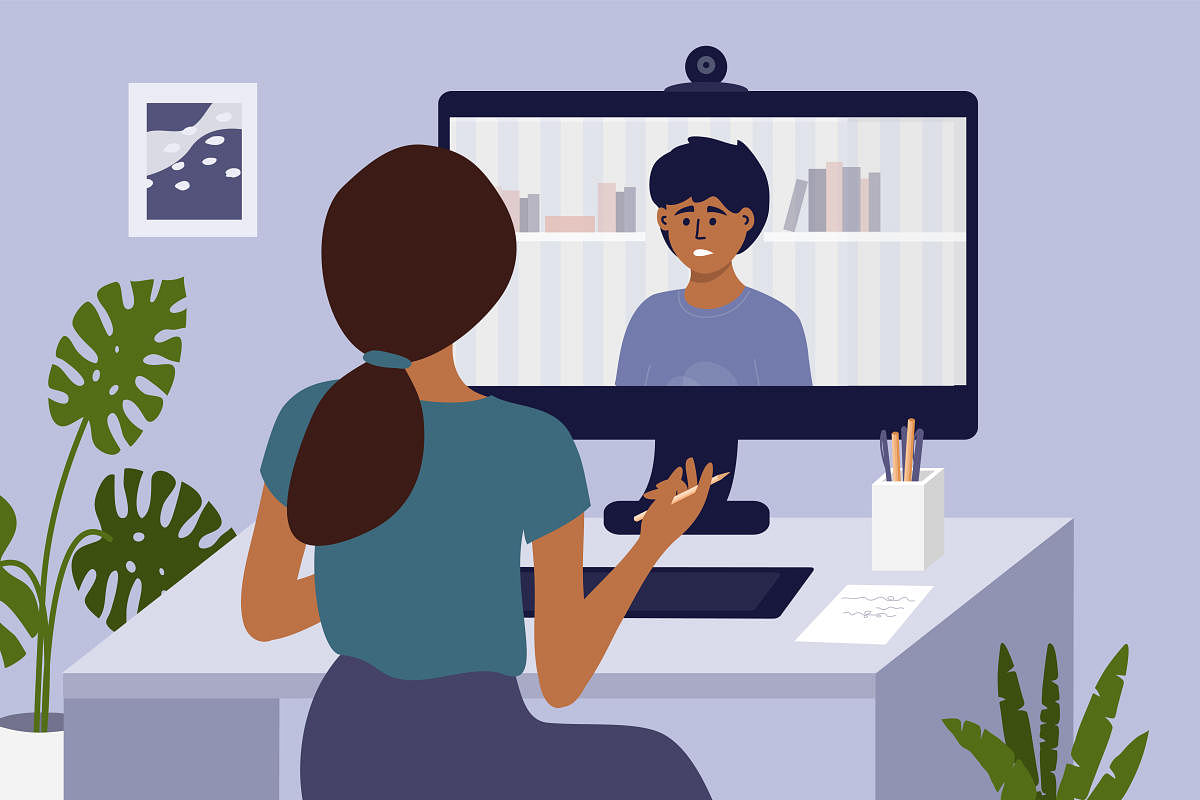
The spotlight is on unqualified therapists on social media, after the Karnataka High Court recently said the government should regulate them.
Psychotherapist Krithika Gopinath told Metrolife that five people consulted her after they were traumatised by therapists they had booked online
during the Covid period.
She shared a case study: “A client was suffering from trauma and was taking ‘neurolingusitic therapy’ from a therapist on Instagram. The therapist claimed to have a diploma but when he filed a case of harassment against her, he found the degree was fake. It took us a year of therapy to bring him back to ‘his normalcy’. He had high levels of stress and trust issues and low esteem when he approached me.”
Smooth talk and friendly advice should not be mistaken for therapy. “Unskilled professionals are not capable of processing long-term problems related to grief, trauma and abuse,” warns counseling psychologist Shanu Ben Choudhary.
Covid surge
Social media saw a spurt in people offering therapy and mental health coaching after the pandemic broke out, a response to the emotional crisis it unleashed. That people could seek help inconspicuously without leaving their home boosted the adoption. Also, many therapists online charge less than those working offline.
A 24-year-old college student shared her experience: “A toolkit was going around on Instagram. On that, I found a counsellor who was charging Rs 300 for the first session as against the offline rate of Rs 1,000-Rs 1,500. She set up a teleconsultation of 45 minutes. Not only did she tell me generic things like ‘Try yoga. Do mindful exercises. It happens to everyone’, she was also judgmental. I was shocked. I discontinued the therapy with her.”
Red flags
So how can one tell a fake therapist from the real and the good from the bad?
Ask for their credentials (degree, certifications, universities and organistions that trained them, years of experience), go by referrals, and look up reviews. Experts call this the first step.
Shanu says, “Therapists in India currently don’t require a licence to practice but a master’s degree in counselling or clinical psychology is a must. Next, they must undertake 250 hours of practicum, that is, give counselling sessions in the presence of a certified supervisor, before stepping into the field. I know of people who call themselves parenting therapists just because they have done a long-distance course. But that’s not how it works.”
The duration of practicum varies from university to university. “I had to complete about 700 hours,” Krithika recalls.
Even after mental health professionals start practice, they stay under supervision. From time to time, it is mandatory for them to go into therapy and even practise under a supervisor to ensure they are following standard procedures, they say.
Counselling psychologist Kala Balasubramanian says, “I set up a 20-minute free call with potential clients so they can ask about my qualifications or the areas I focus on. Therapy works on trust and transparency.”
It is important to look for professionalism (or the lack of it) when you contact a therapist. Kala says, “Are they clear about how much they charge and how they maintain confidentiality?”
Krithika adds, “If the therapist schedules calls and sessions at odd hours or offers therapy three or four times a week and beyond 50-60 minutes, it is unusual.”
Lack of professional boundaries can also be a red flag. If they share their personal numbers and are always available for a session, or ask to meet you at cafes or undesignated spaces, be wary, says Shanu.
Mental health experts often work in a network. “So assess if they are working within a system or in silos,” suggests psychologist Nithya J Rao.
Kala points to other red flags: “Be careful if the therapist poses judgemental questions like ‘How could you do this?’, or brings a political flavour into the conversation.”
Also be careful about those who claim they can erase memories and give instant solutions.
Nithya suggests therapists closest to the client’s social reality: “A therapist from an upper class background may not grasp the problems of the lower class and vice-versa. An elderly therapist may not know what ghosting on a dating app is.”
Ashrita Lokhande is a wellness therapist on Instagram. She is aware of the growth of unskilled therapists on social media. “People just do it for money. It’s wrong because children can easily access them and may get ‘wrong’ help. I use meditation, yoga and body consciousness awareness and I claim nothing else,” she says.
(With inputs from Anoushka Metrani)
Don’t stop, regulate
Nithya J Rao feels the government should identify genuine social media therapists and upskill and supervise them instead of curbing them.
She explains, “One, India needs 10 psychologists for every one lakh of the population but currently, it has about one. Two, mental health is still a topic of stigma and people like to seek help from people they love and trust. Three, 86% people who study psychology in India are women and many drop out of their careers after marriage and having children. So we should embrace these new players, some of whom become therapists after taking up small courses when they lose a child or parent and experience grief.” The need for regulation was felt by all. Kala Balasubramanian says, “While the standards of education and practice are mentioned under the National Commission for Allied and Healthcare Professions Act, 2021, they are yet to be implemented in spirit.”
Fraudulent therapists can be imprisoned for up to seven years under Section 420 of IPC.
Be wary of therapists
Who aren’t appropriately trained. Who want to meet you at undesignated spaces like cafes.
Offer therapy beyond 60 minutes, and are always available are judgemental.
Offer instant fixes or solutions unrelated to the case.
(According to experts interviewed by Metrolife)